Ukraine is a candidate for EU membership. What will it change, and when will it join?
On June 23-24, the European Union will hold a summit, and even though we haven't joined the EU yet, it has long been one of the essential topics in Ukraine. After all, we have a chance to get the candidate status to join the Union. It will be a significant victory and only the first step toward the EU. We explain more in our article.
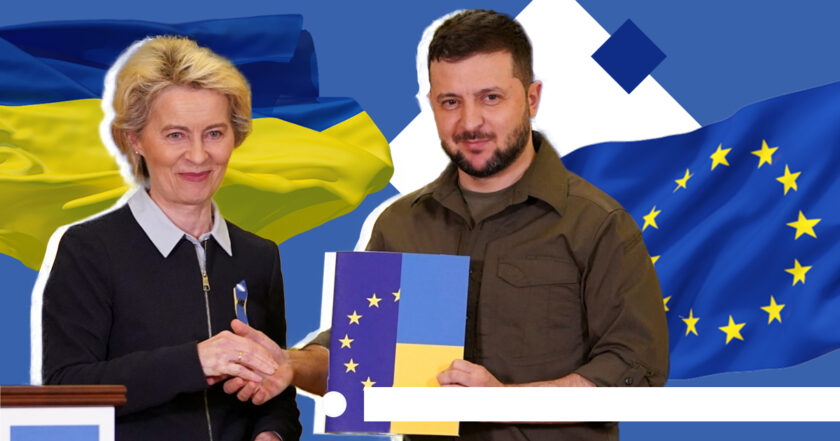
Ukraine became closer to the EU on June 17, when the European Commission (the de facto government of the European Union) announced its verdict: our country should receive candidate status. However, it's only half the battle because, at the forthcoming summit, Ukraine needs to get the vote of each member of the European Union.
Our diplomats are working on it. So far, the chances are good: our bid is supported by EU heavyweights, like French President Emmanuel Macron and German Chancellor Olaf Scholz, as well as Hungarian Prime Minister Viktor Orban, who has promised to say yes.
Bloomberg and Euractiv claim that Ukraine will still receive candidate status, and all 27 member states agree.
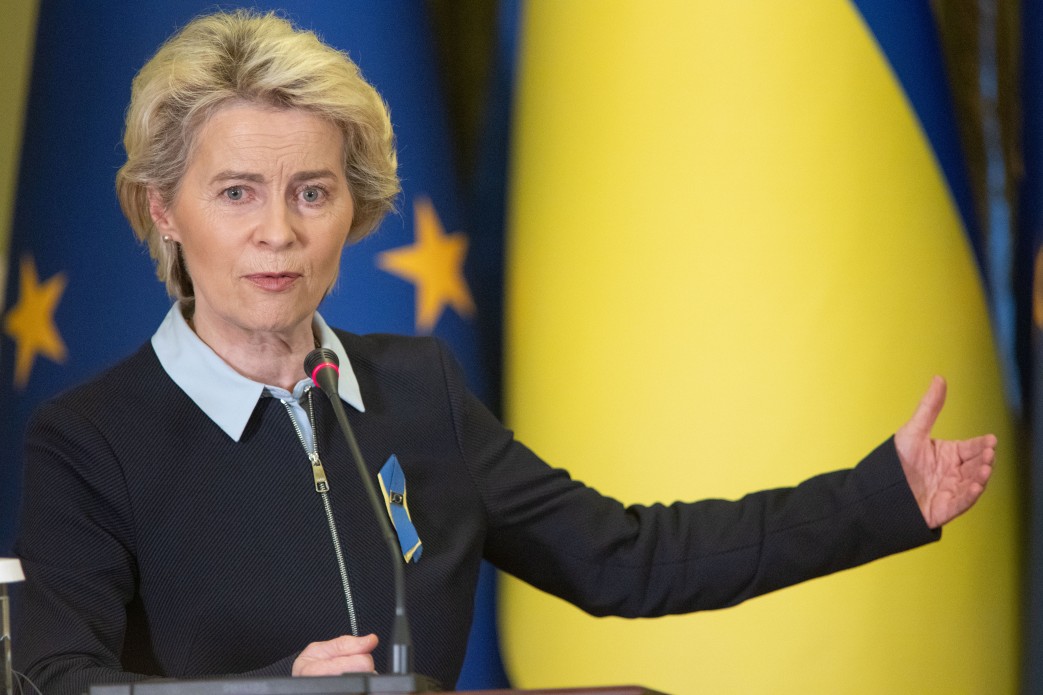
If that happens, it will be a political and diplomatic victory. After all, the bloc officially acknowledges that Ukraine is part of Europe, not russia's "sphere of influence." The example of the Western Balkans shows that this status is not a formality; the EU's relations with the candidates are much closer than just with its neighbors.
At the same time, the EU will not give us guarantees of joining the bloc on June 23. The European Union has never made promises such as "in 10 years, we will accept you."
For example, Turkey received candidate status in 1999, but Ankara later failed to negotiate with Brussels. Croatia, having applied in 2003, has already joined the European Union, and the Turks are stuck in the first stage. After all, there are three no less essential steps ahead.
We will see the practical benefits of the new status as soon as the hostilities are over. Experts, the authors of an open letter from Ukrainian NGOs to the EU, say it will be easier for the candidate country to attract investors for post-war reconstruction. After all, the European Union will signal businesses: we believe Ukraine has a chance for rapid reforms and economic recovery.
By the way, it will be a good signal for millions of our refugees abroad, saying come back, the change will now draw the country to the EU level.
In addition, the European Union has special funds for candidate countries. Brussels is investing in their economies and allocates a lot of money: the seven-year budget of this project was 14 billion dollars. There are also grants and long-term loans that Ukraine will also have a chance to receive.
According to media reports, the European Commission has already developed a plan to rebuild our country, and if we are candidates for accession, this cooperation will only intensify.
The path to EU membership is longer. What else should Ukraine do?
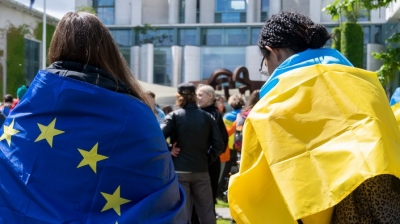
Unsurprisingly, the candidate must address the European Commission and the European Council for the second time: to agree with them on the official start of negotiations for the EU accession. Yes, formally, it's a separate process, and Ukraine will not be permitted to do it soon.
After all, Brussels wants to simultaneously push the President's administration, the Cabinet of Ministers, and the Ukrainian parliament, Verkhovna Rada, to rapid reforms. Therefore, the know-how was included in the decision, especially for us: together with the candidate status (if we get it), Ukraine will receive a list of 7 mandatory steps it must complete. Europeans will regularly come with inspections to check our successes. The first of them will take place at the end of 2022.
It may remind readers of 2016-2017, when the European Commission set requirements (for example, to launch an electronic tax declaration), and the team of then-President Petro Poroshenko had to implement them to get a visa-free regime.
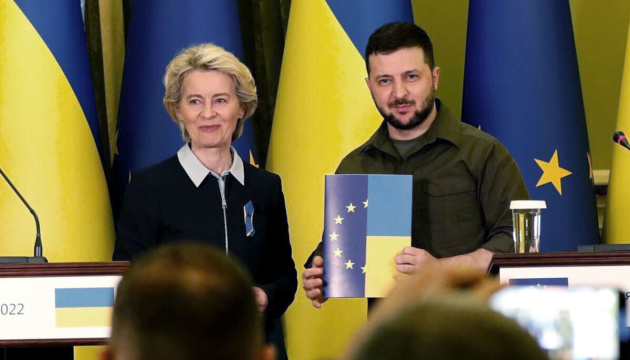
Thus, the largest of our "homework" is to carry out judicial reform, resetting the Supreme Council of Justice and High Qualification Commission of Judges of Ukraine (two key bodies in this area), and change the selection of judges to the Constitutional Court of Ukraine. We are also expected to make anti-corruption changes, including successful competitions for the positions of heads of the Specialized Anti-Corruption Prosecutor's Office (it remains to appoint a winner) and the National Anti-Corruption Bureau of Ukraine (NABU), as well as investigations and sentences. Plus, the Ukrainian government will have to fight the oligarchs.
The other three points concern the fight against money laundering, legal changes to audiovisual services (television and online video services), and the law on national minorities. For Hungary not to blackmail Ukraine on the latter issue, Brussels will act as an arbitrator, and the Venice Commission will analyze the bill.
The motivation is twofold. First, as the European Pravda reports, the European Commission unofficially says: if the auditors see Kyiv is diligently implementing reforms, they will begin membership talks before we complete them! However, we will not be given official written guarantees. After all, the same struggle with the oligarchs and the "reset" of the Constitutional Court can take more than one year.
Second, Europeans have included a unique point in the decision: Ukraine will be punished by taking away candidate status if the country refuses to reform. Other candidates, such as Albania and Serbia, don't face such punishment.
If we recall the recent statements of European politicians, this decision is not an insult but rather a step toward Ukraine. After all, a week ago, even Sweden and Denmark, which favor us, offered not to give candidate status yet but to promise it in exchange for anti-corruption reforms.
But it seems that Ukrainian diplomats managed to convince their partners that such a good intention would be a blow to our country. As a result, we reached a compromise.
Meanwhile, many activists are happy with the European Commission's decision. The general mood is that the authorities will now be more active in judicial reform or anti-corruption.
Because now it is not only the requirements of experts in these areas but also the path to European integration that 87% of Ukrainians support. Therefore, voters will demand from their deputy or party not only to be a patriot but also to carry out reforms.
"Any government should do this or go to the dump of history as one that has once again tried to expand European integration," wrote Mykhailo Zhernakov, chair of the board of the DEJURE Foundation.
It seems that Brussels' motivation is already working. Thus, on June 20, the Verkhovna Rada ratified the Istanbul Convention on protecting women's rights.
Ukraine postponed voting for it for many years, but now it turns out that the document is vital for Sweden and the Netherlands. We need their support at the EU summit; Ukrainian MPs gave 259 votes in favor of ratifying the convention.
On the same day, the Verkhovna Rada adopted an anti-corruption strategy. It applies not only to sentencing bribe-takers but also to transparent public procurement, electronic registers, and privatization, all of which reduce the scope for abusive officials to abuse. Probably, it was also a way to show the European Union that Ukraine was moving forward.
Next will be another extensive list of reforms that Ukraine will have to implement
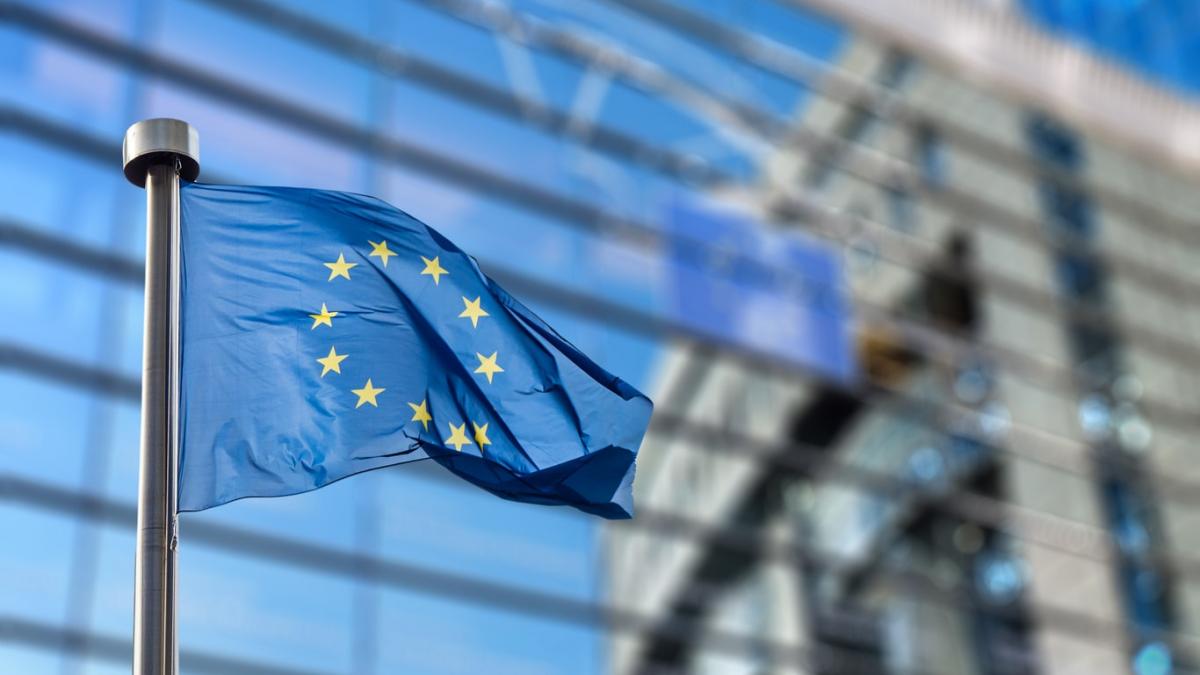
Such news—perhaps coupled with Olaf Scholz's idea to simplify accession—charged Ukrainians with optimism. More than 70% of citizens now believe that we will join the EU in 5 years. In fact, 4-6 years is just the average duration of this process (although from the start of negotiations, not the candidacy). After we fulfill seven requirements, there will be another stage.
When the European Commission agrees to start negotiations with us, Ukraine will have to implement the so-called acquis communautaire. This French phrase refers to 35 blocks of laws, norms, and court decisions of the European Union, which a candidate country must incorporate into its legal system, "upgrading" it to EU requirements.
After all, the union de facto has a shared economy. For example, business laws, environmental regulations, or the tax system of two member states should not be too different and must meet strict European standards.
By the way, "joining the bloc with the turbo regime," bypassing the acquis, is simply impossible. After all, the EU will not accept a country that does not fit into its norms.
The list of all the rules that must be approved is 80 thousand (!) pages. Of course, nothing prevents us from concluding agreements with Brussels at the same time, de facto integrating our economy into the European Union.
In addition, Ukrainians already have experience reforming according to EU standards since the visa-free campaign. The government will fulfill part of the acquis when it implements the exact seven requirements; some of them are already in operation (as a "customs-free regime") or have been completed (yes, Ukraine has joined the EU energy networks).
In short, there's reason to hope for a faster finish than the previous candidates: Croats, Bulgarians, and Romanians.
The final test for us will be a series of votes when the European Commission, the European Council, the European Parliament, and the parliaments of all member states will have to support Ukraine's accession to the EU. It is now difficult to predict what the Bundestag or the President of France will think of us in the conditional 2027, but the history of the European Union gives two important clues:
- Ukraine needs not only reforms but also an economic boost. Opponents of EU enlargement like the argument that each new country will then ask for billions of euros and prosperous Germany, the Netherlands, or France will have to feed it. But if our state shows them success stories and Europeans invest here en masse, it will reduce skeptics.
- Our country must be a model of democracy and the rule of law (yes, you can say goodbye to the dreams of Ukrainian Pinochet at once) because the European Union is now afraid of the "second Hungary" scenario, i.e., the emergence of another authoritarian populist leader who will fight Brussels and blackmail partners. Ukraine needs to overcome these fears as well.
Even though the path to full membership in the European Union will be long, the speed we pass it will largely depend on ourselves. It should be the best motivation to reform.

European Parliament adopts resolution to support granting Ukraine candidate status for EU membership

EU leaders officially recognize Ukraine as a candidate for accession: draft conclusions
🇺🇦Ukraine counts on getting EU membership and here is why we deserve that. Ukraine's spirit, dedication to European values and fight for freedom will bring prosperity to the EU. This small win will reaffirm that our fight makes sense for all of Europe🇪🇺 Share this video pic.twitter.com/9vCYySWJvX
— Rubryka – Solutions from Ukraine (@RubrykaEng) June 16, 2022






















































